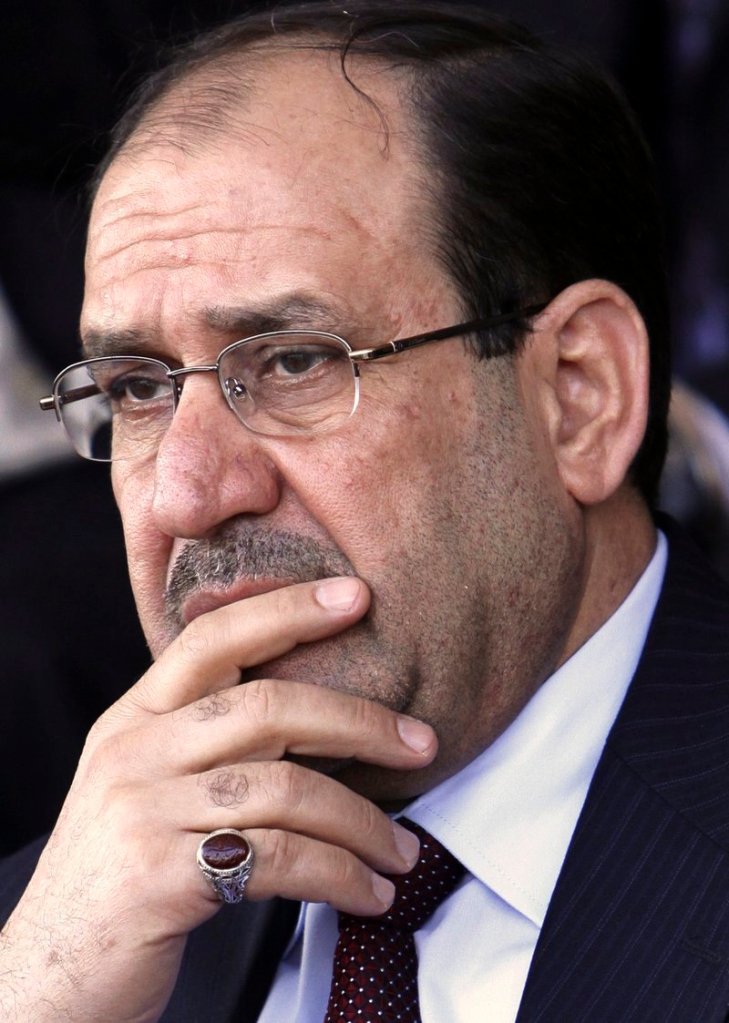BAGHDAD – Iraq’s prime minister said Friday he’ll return half of his annual salary to the public treasury in a symbolic gesture that appeared calculated to insulate himself from the anti-government unrest spreading across the Middle East.
It was a stunning statement for Nouri al-Maliki, who has resisted disclosing his pay in the five years he has led Iraq. He described it as an effort to narrow the gap between the nation’s rich and poor.
Coming in the wake of popular uprisings in Egypt and Tunisia, however, al-Maliki also seemed to be shielding himself from public bitterness over Iraq’s sagging economy and electricity shortages.
Al-Maliki narrowly secured a second term in office after months of political negotiations last year. He is believed to earn at least $360,000 annually.
“Fifty percent of my monthly salary will be reduced, starting from the current month, as a contribution from me to reduce the difference in the salaries of the state officials,” al-Maliki said in a statement Friday. “That will help limit the differences in the social living standards for different classes of the society.”
Al-Maliki also noted that his pay cut comes as Iraq’s parliament considers what the Finance Ministry projects will be a $90.5 billion spending plan for this year.
Hours earlier, Sunni and Shiite clerics used Friday sermons to warn government leaders against letting poverty, oppression and corruption become the norm — or face the consequences of the unrest that has gripped parts of the Arab world in recent weeks.
“All governments — even those which embraced democracy — have to study the essential reasons that have lead to this overwhelming popular anger against the political regimes in those countries,” said Shiite Sheik Abdul-Mahdi al-Karbalaie, a top representative of Grand Ayatollah Ali al-Sistani.
Emboldened Iraqis staged several small protests over what they called corruption in the government’s security forces, rampant unemployment and scant electricity and water in homes.
U.S. government estimates indicate that as many as 30 percent of Iraqis are unemployed, and households nationwide have as little as three hours of electricity or running water daily because of the country’s antiquated and overloaded power grid.
Wisam Sabir, a 45-year-old activist for the al-Noor government watchdog group, said Iraq’s problems are far worse than those of some of its Arab neighbors.
“We watched the uprising in Tunisia, but the services there are better than here,” she said at a small demonstration outside a coffee shop in Baghdad.
Send questions/comments to the editors.



Success. Please wait for the page to reload. If the page does not reload within 5 seconds, please refresh the page.
Enter your email and password to access comments.
Hi, to comment on stories you must . This profile is in addition to your subscription and website login.
Already have a commenting profile? .
Invalid username/password.
Please check your email to confirm and complete your registration.
Only subscribers are eligible to post comments. Please subscribe or login first for digital access. Here’s why.
Use the form below to reset your password. When you've submitted your account email, we will send an email with a reset code.